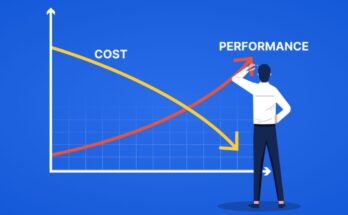Every day, we are bombarded with massive volumes of fresh information. Trainers, in particular, might get quickly overwhelmed by the abundance of knowledge related to competition data, new product and service releases, market developments, and industry trends and experience information anxiety as a result.
How can we handle the tens of thousands of journals, periodicals, newsletters, and blog posts at our disposal, even if we have access to a range of information and communication tools? How can we thrive in a world with thousands of printed pages, millions of online pages, and hundreds of emails, phone calls, and text messages?
Here is a list of tips to deal with information overload:
Consider the type of information you’re looking for ahead of time:
Have a good concept of what kind of data you want and need to collect. News about your business or profession; important product and service advancements; significant laws and new legislation; client, customer, or consumer-related information; unique applications; competition intelligence; and developing trends and opportunities are all examples of such information.
Determine who is in charge of vital information:
Identify a few major information sources in each profession, such as magazines, websites, blogs, and hard news sources, that cover what’s going on in the area. You’ll only need three to four sources; you’ll be amazed at how much coverage overlap there is.
Streamline Your Capacity for Intake:
You must develop a rigorous approach to obtaining, synthesizing, and using such information that will benefit you, your team, and your business once you have identified the type of information you want and a few of the best sources.
- Stay tuned in to your goals and objectives and focused on the information that will help you achieve them. It will offer you the best chance of succeeding.
- Depending on your job duties, you might want to avoid social networking. Your goal is to keep a steady stream of relevant data flowing in as little time as possible.
- Yes, you can pay attention to side concerns on occasion. Focus on the facts that will make a difference in your effectiveness in general.
Information crutches should be avoided at all costs:
Many people naturally tend to gather and store information that supports what they already think or know to be true. They don’t need to remember such details; the exercise is more of a reflex movement. With today’s huge volumes of information on the Internet and the power of search engines, holding on to much is no longer essential.
- More important is the capacity to quickly discover what you need, which frequently just needs a few keystrokes.
- Keeping heaps and folders of hard copy material have lost its usefulness and might stifle your productivity.
- Furthermore, files and information that you keep for more than 18 months may frequently be removed without causing harm.
Create a Distribution Network:
You should not spend an excessive amount of time acquiring knowledge as you advance in your job. Junior workers can identify, gather, and disseminate a lot of the information they need. You may utilize them as information scouts and as a type of rereading trimming service.
You’ll be better equipped to think creatively in ways that will assist drive your team, division, or department ahead once you’re freed from the continual work of collecting and compiling information. This is especially true when a new product, service, or delivery method is being introduced.
When sending information, use caution:
Our lack of organizational rules is often to blame for the overwhelming volume of data. Such rules might alternatively protect us from unnecessarily and excessively exposing ourselves to knowledge that is incompatible with our existing problems.
- When transferring information, learn to be more discerning.
- Avoid acronyms, abbreviations, and jargon that might lead to misunderstandings, and keep your contact with others to a minimum by giving only the information that is required.
- We must also urge one another to refrain from CCing and BCCing when required and avoid sending “FYI” letters entirely.
Design Reactions:
During your workweek, you’ll be bombarded with a variety of demands. At least 20 distinct signatures are supported by most email software systems today. Because many of them are regular, you may use the signature function in your email to automate your answers. You may generate and store signatures by category to help you reply to customers and clients quickly and efficiently. The signatures you’ve created can also be customized to meet the specifics of a given inquiry.
- What types of signatures might you make ahead of time?
- The more signatures you establish, the faster and more productively you can answer questions from inquirers.
- Rosters, standard letters, product descriptions, service descriptions, price lists, the background of your team or organization, credentials, organizational history—the more signatures you establish, the faster and more productively you can answer questions from inquirers.
Get Rid of the Paper:
Every industry will need to keep a range of hard copy files and papers. Nonetheless, whether it’s in file cabinets, desk drawers, or storage bins, you may start a campaign to minimize the amount of paper you keep.
- Examining each document, you get to see if it is worth keeping. Will a scanned copy of the document be sufficient?
- If this is the case, scan it and discard the physical copy.
- Yes, scanning takes more time and work, but the result is well worth it in the long term.
- When you label each of the papers you’ve adequately scanned, you improve your ability to find them fast on your hard drive or online. It is usually easier to locate such e-documents than it is to locate physical copies.
Review and update your plan regularly:
Review your papers regularly. Is the data still applicable? Is it necessary to mix it with something else? Is it necessary to reclassify it? Your objective is to have as a few holdings as possible.
- To avoid feeling overwhelmed, work on a few file folders at a time. Consider the following questions: “What can be taken away?
- What should be consolidated?
- What can be removed so that the few pearls of wisdom that are critical to my success can be used when they are needed?”
- Consider this assignment from the perspective of a project manager, and do it one step at a time.
Recognize the Advantages of Staying Organized:
Organizing isn’t exactly a glamorous job. It’s possible that staying organized will make you nervous. Yet, in a world where we are bombarded with information and communication, mastering your files and managing them so that they serve you is more essential than ever.
Because of this, students can seek professional assignment Help to ace their essay writing potential and skills.
When we let things pile up, we get information overload. People who learn to recognise, acquire, retrieve, and use the appropriate knowledge at the right moment are extremely important to their companies and teams. If you need a quick assistance with organizing your essay, do not hesitate to seek essay help service.
Conclusion
Ultra-productive leaders who grasp the value of information and communication management will rule your business or profession in the future. Regardless of the challenges they confront, these knowledgeable information managers can guide their team or business on the right path. Why? They have a well-developed capacity to extract knowledge from data and identify, organize, and teach it. Finally, they will be able to use their expertise to lead with wisdom.




